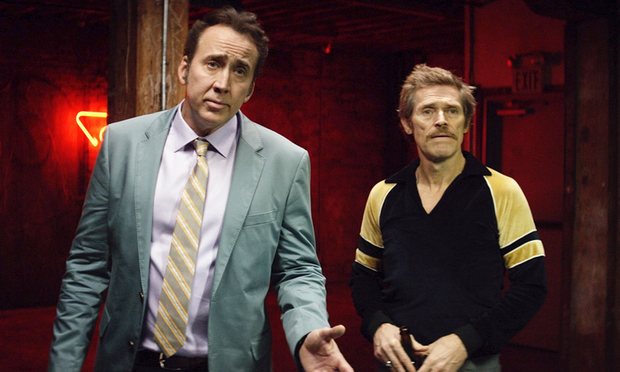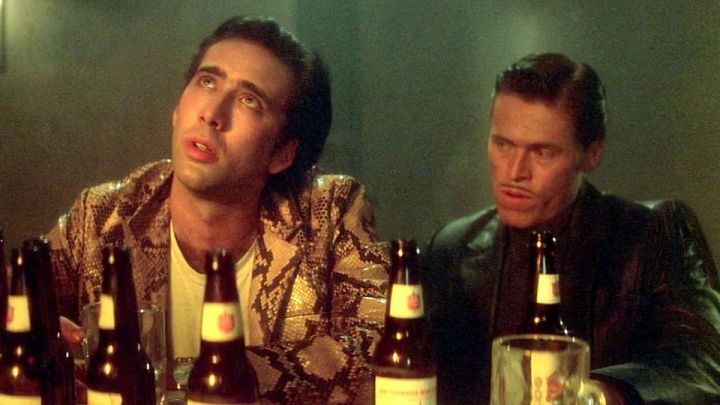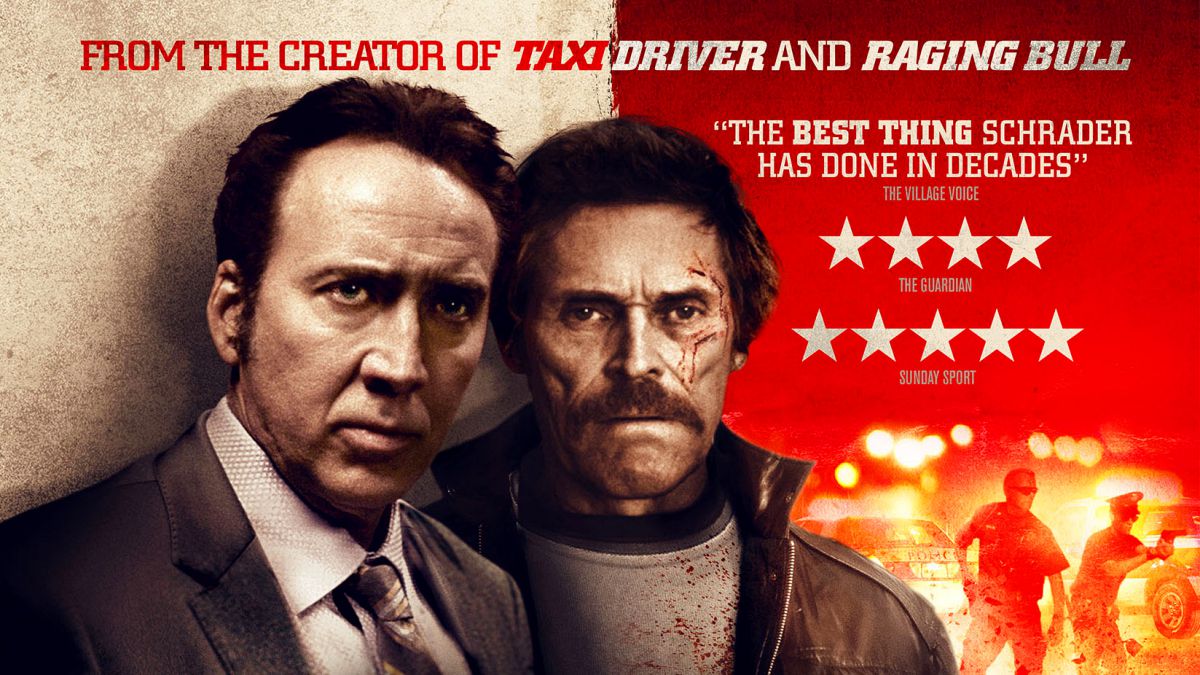Following his release from prison, Troy (Nicolas Cage) shows no interest in reintegrating within society as a respectable citizen. In fact, he rounds up his similarly disillusioned pals Diesel (Christopher Matthew Cook) and Mad Dog (Willem Dafoe), in the pursuit of a score which will set them up financially, for life: the abduction of a child in the hope of obtaining a ransom. But once the body count begins to rise, these bumbling fools are forced to accept that perhaps this isn’t their line of work after all…

As once recounted by director Paul Schrader, his offer of a part in his feature Dog Eat Dog to Nicolas Cage, consisted of Cage turning down the part of a “crazy person”, for the role of a “straight” character. To some, this might come as a surprise considering Cage’s IMDB credits and his upcoming feature Army of One, in which a man receives instructions from God to locate and kill Osama Bin Laden (based on a true story, of course). And to others, it might be a crying shame – some of Cage’s best work is when his performances are at their most unhinged (Wild At heart, Bad Lieutenant: Port of Call New Orleans). Regardless, this is Schrader’s chance to operate at his most artistically deranged. Working with the guarantee of final cut and the rejection of a unified cinematic style, Dog Eat Dog frequently defies the constraints of low-budget filmmaking.
Yet, it isn’t particularly easy to wrestle with the subject material of Matthew Wilder’s screenplay. Loosely based upon Edward Bunker’s novel of the same name, Dog Eat Dog fails to operate from the disturbing authenticity of its source material, as it trades moral and social resonance for gleefully disturbing violence, which fails to provide a reason for such unsettling chaos. Dog Eat Dog admits that its characters are psychologically and emotionally flawed (their actions confirm this), but with each opportunity for the film to provide a social commentary regarding the lack of opportunities/assistance afforded to reformed criminals within the USA, Wilder decides to pursue conversations which only ever show glimmers of creating social commentary. Dog Eat Dog doesn’t profess to be a film which revolutionises the crime drama, but following films from rule breakers such as Martin Scorsese (Goodfellas) and Francis Ford Coppola (The Godfather), the genre requires artists to reimagine narrative archetypes, or risk losing audience/critical interest. Artists such as Ben Affleck proved (with The Town) that clichés of a genre can in fact be utilised, as long as the film possessed an emotional core at its centre.
Wilder’s screenplay features such repugnant characters, that it becomes quite difficult to ever connect with them. Yet Schrader’s cast elevate their material, especially Cage. His character, Troy, is infatuated with Humphrey Bogart. So for the last scene, Cage himself portrays his character as Bogart. It may seem a little strange, but Schrader attested to the fact that Cage himself is “highly responsible and highly prepared”. The performance never seems to feature overly spontaneous acting choices, but those of a methodical nature – is Cage (as a performer) due for a rethink? Dafoe and Cook also excel when delivering sequences of a comedic nature, but it is Dafoe however, who grants an otherwise morally reprehensible character with measured pathos, as the film’s most psychologically complex character.

Regardless of the film’s evident lack of money (one shot of appalling CGI makes that clear), Dog Eat Dog’s slick cinematography is frequently stunning. Despite being photographed by newcomer Alexander Dynan, Schrader’s film is graced with accentuated, vivid colours which grace the film with an additional layer of significance, especially within its final scene. Dynan is similarly skilful when filming sequences of violence, whether he grants them a frenetic energy or a slow-motion pacing, which truly reflects an instinctual ability of how to direct action cinema without it becoming difficult to decipher the current situations of the characters and the consequences of their actions, within a fast paced sequence.
Callousness is misinterpreted as pitch-black, violent hilarity, in Paul Schrader’s attempt to naturistically depict a criminal lifestyle, which descends into a frenzied concoction of alluring visual style, aimless narrative developments, one huge plot hole (admitted by Schrader himself) and a distinct lack of justification for the entire picture. Cage, Dafoe and Cook leave unscathed however, having turned in three naturalistic renditions of ex-cons struggling with a multitude of personal demons.
Dog Eat Dog is out 18th November

